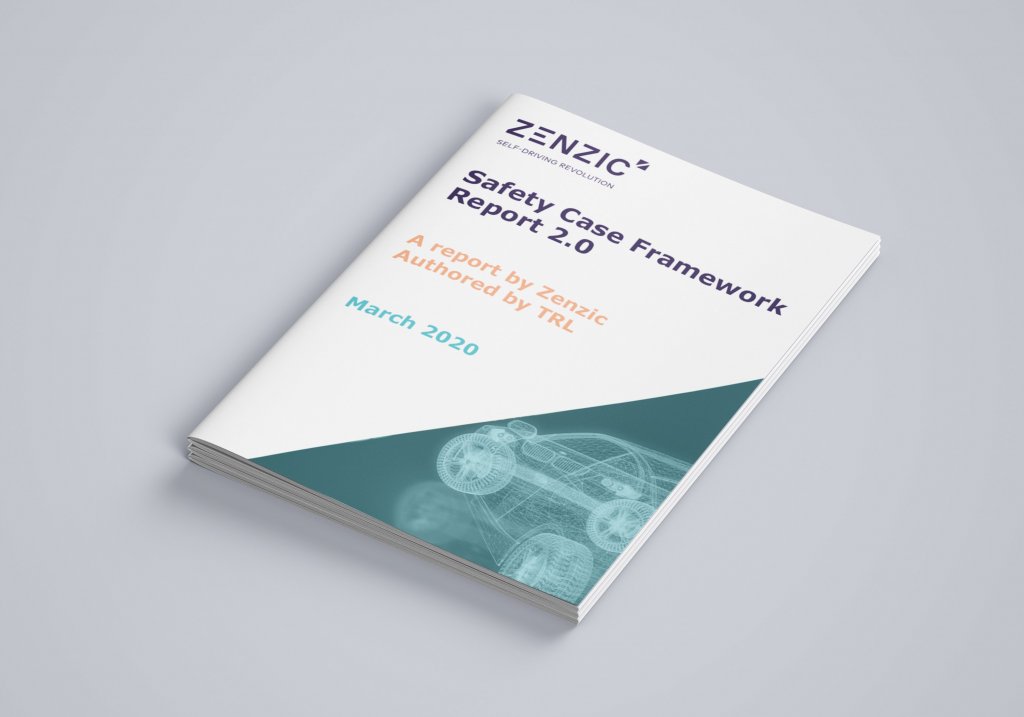Download the Safety Case Framework 2.0 today!
This report by Zenzic, authored by TRL, sets out detailed safety requirements to be used across the CAM Testbed UK ecosystem – ensuring a consistent approach and delivering a more seamless customer journey for organisations testing connected and self-driving technologies in the UK. The Framework:
- provides the ability to move safety cases between CAM Testbed UK facilities with a common approach;
- builds on existing processes and best practice;
- focuses on safety cases that scale with complexity of Operational Design Domain (ODD).

Zenzic, TRL, BSI and the wider connected and automated mobility (CAM) ecosystem are enhancing the guidance for safety in the UK and developing processes for the future of the sector.
Safety Framework and PAS 1881
The updated Safety Case Framework 2.0 has been developed to include input from BSI’s first PAS 1881, published as part of the Connected and Automated Vehicle (CAV) Standards Programme to help promote safe public trials and testing of automated vehicles. PAS 1881 and the Zenzic Safety Case Framework 2.0 intended to complement each other.
Background
The Code of Practice for Automated Vehicle Trialing released in 2019 by the Department for Transport, promotes responsible vehicle trialing and details some safety recommendations, including the requirement for a safety case.
Zenzic identified a further requirement for a consistent approach across CAM Testbed UK by setting out safety requirements in more detail. During 2019 an initial Safety Case Framework was developed by Zenzic, that set out high level safety requirements for use across the CAM Testbed UK ecosystem. The initial framework formed the basis of the new BSI PAS 1881 standard (now launched) and is linked to this updated edition of the Framework 2.0. The new Safety Case Framework 2.0 benefits from expert industry knowledge and cross-sector contribution gained by BSI.


